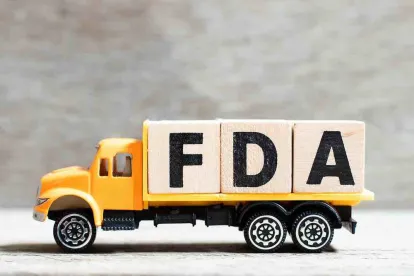The Food and Drug Administration (FDA) and the National Telecommunications Information Administration (NTIA) in partnership with three domain name registries disabled nearly 30 websites illegally offering opioids for sale. Working together as part of a pilot program jointly created by the Department of Health and Human Services (HHS) and the Department of Commerce (Commerce), FDA and NTIA aim to reduce the availability of unapproved and misbranded opioids illicitly offered for virtual sale. Based on several joint warning letters and the subsequent shuttering of numerous websites illegally selling opioids, it would appear the partnership is a success. Both agencies and the domain registries have committed to continuing this working relationship beyond the pilot program. Time will tell if the continued joint effort reduces the unlawful sale of opioids online and in turn, minimizes the risks associated with the opioid crisis.
In a press release, Donald D. Ashley, director of the Office of Compliance in the FDA’s Center for Drug Evaluation and Research stated, “Those who illegally sell opioids online put consumers at risk and undermine the significant strides we have made to combat the opioid crisis,” Unapproved and misbranded opioids sold online are usually sold without a prescription, without adequate directions of use, and without health care provider oversight. Opioids are deadly drugs that create significant risks that can lead to addiction, overdose, and death. In addition, opioids sold online are potentially contaminated, counterfeit, expired, or otherwise unsafe. Buying them online increases the financial risks to the customer in the form of credit card theft, identity theft, and computer viruses.
HHS and Commerce launched a 120-day “trusted notifier” pilot program in an attempt to curb illegal online sales of unapproved opioids on June 8, 2020. See the HHS and Commerce press releases here and here. This announcement built upon the April 2019 Online Opioid Summit where former FDA Commissioner Scott Gottlieb, MD, acknowledged the formation of the partnership, importance of proactive engagement needed from internet registries and registrars, and the efforts already under way to address illegal activity online. As part of the pilot program, FDA and NTIA, a branch of Commerce, collaborated with three U.S. domain name registries, Neustar (.us), Verisign (.com, .net), and Public Interest Registry (.org). The agencies and registries work together to remove major channels for the sale of illicit opioids.
Under the program, FDA serves as the “trusted notifier” alerting participating internet registries when the agency sends a warning letter to a website operator that illegally sells unapproved opioids. A trusted notifier is generally recognized by a registry or registrar for providing credible and accurate information about illegal or abusive website content to domain name registries and/or registrars. If the website operator is non-compliant and fails to adequately respond to FDA’s notification/warning letter within the required timeframe, the internet registries review the FDA’s notifications and assess whether to take further voluntary action. The internet registries maintain several options for further action as a means to mitigate harm to consumers and the proliferation of dangerous content online through:
- Locking the domain to avoid transfer of the content of an alternate URL or platform;
- Deleting the domain from the registry; or
- Placing a hold on the domain until a further review is completed.
NTIA is responsible for telecommunications and information policy issues and assists the participating internet registries in making a determination to suspend/block a website operator. Working with the agencies, the internet registries may expedite the process for suspending domain name registrations. At the end of the pilot program, NTIA, FDA, and the domain name registries will analyze the program’s effectiveness and its potential as a long-term solution to combatting the illegal sale of unapproved opioids online.
On September 10, 2020, FDA issued warning letters to 17 website operators for illegally selling unapproved and misbranded opioids online in violation of the Federal Food, Drug, and Cosmetic Act (FD&C Act). This was the first significant action taken by the agencies under the program. The unapproved and misbranded opioids included those offered for sale without a prescription, as well as opioids that lack adequate directions for use. Tramadol and oxycodone, were included are examples of a couple drugs included in the warning letters. Both drugs pose significant risks of addiction, abuse, and misuse and should only be used under the supervision of a licensed health care provider. Of particular concern is tramadol, which carries a Boxed Warning, the agency’s most prominent warning, indicating that the drug carries significant risks of serious or even life-threatening side effects.
A similar enforcement action took place almost a year prior in September 2019. FDA and the Drug Enforcement Administration (DEA) issued joint warning letters to four online networks that operated 10 websites for illegally marketing unapproved and misbranded versions of opioid medicines, including tramadol. According to the warning letters, the online networks were accused of violating the Controlled Substance Act by failing to register their online pharmacies with the DEA despite “knowingly or intentionally advertising the sale of controlled substances, including opioids.” The online networks were ordered to immediately stop illegally selling these opioids to American consumers.
Following the FDA-DEA warning letters, former Acting FDA Commissioner Ned Sharpless, M.D. commented, “[a]s the FDA works to forcefully tackle the opioid crisis on all fronts, we cannot allow rogue online pharmacies to continue to fuel the crisis by illegally offering opioids for sale and circumventing the important safeguards that have been put in place for opioids to help protect the public health . . .Today’s effort is also noteworthy because while the FDA partners regularly with the DEA, this is the first time we have issued joint warning letters with them. This action further strengthens the warning to the operators of these websites. We remain committed to using all available regulatory and enforcement tools to stop the illicit flow of opioids online.”
Former Acting DEA Administrator Uttam Dhillion noted similar benefits of the joint effort, “Issuing these warning letters is not only an effort to deter the availability of dangerous illegal opioids, but it is also a testament to the close cooperation between DEA and FDA.”
So it was no surprise that FDA and NTIA teamed up to facilitate a similar joint effort. The trusted notifier pilot program concluded in October 2020 after the issuance of 17 warning letters. To show the seriousness of the enforcement actions, a few months later, NTIA stated that the pilot program rendered inaccessible nearly 30 domain names associated with websites that were offering misbranded and/or unapproved opioids for sale to U.S. consumers.
With the end of the pilot program, NTIA, FDA, and the domain name registries analyzed the program’s effectiveness and its potential as a long-term solution to combatting the illegal sale of unapproved opioids online. As of January 2021, NTIA announced that itself, FDA, and the U.S. domain name registries will continue moving forward with this relationship. The pilot enhanced the effectiveness of FDA’s existing program by engaging the registries to take action on the websites’ domain name registrations. According to NTIA, the pilot yielded valuable insights into potential mechanisms to help fight against the opioid crisis.
FDA’s continued efforts to work collaboratively with other agencies denotes the seriousness of the enforcement actions’ message. Be on the lookout. It would not be surprising if FDA continues to issue joint enforcement actions related to opioids. When something is successful, why stop?




 />i
/>i

